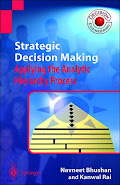Mind Activity and Sleep Quality – A Conjecture
(1) In a recent study (https://bigthink.com/mind-brain/how-many-thoughts-per-day?rebelltitem=4#rebelltitem4) the frequency of thought was estimated using a concept called “thought worms” – adjacent points in a simplified representation of activity patterns in the brain. They report that a human being goes through 6200 thought worms per day. They did not study what these thoughts are, rather when the brain shifts to the next one.
(2) In a classical paper in 1956 Miller explained the limits on human information processing as magic number 7 plus or minus two http://www.musanim.com/miller1956/ (human mind can distinguish 7 plus or minus distinct objects or sensory inputs at the same time. We can interpret this to be keeping 5 to 9 thoughts in mind for a short duration of time; after which the mind shifts to next set. Of course, it will not be that suddenly complete set of thoughts is changed to next set abruptly. It is quite likely a transition. The maximum number of possible thoughts i calculated some years back as https://innovationcrafting.blogspot.com/2010/12/ideas-and-thoughts.html
(3) If we take sleep time as 8 hours and Millers 7 plus minus 2 as the number of thoughts that we can keep in our mind; this implies human being is awake for 16 hours or 16x3600 = 57600 seconds total time (wake time). Assuming the 6200 thoughts at point 1 are for 16 hours wake time only. The ratio 57600/6200 = 9.29 seconds per thought if we just keep one thought at a time and switch to the next one in a sequential manner. Every 9.29 seconds brain goes to next thought.
If we take Millers 5 as the information processing capacity – that is 5 thoughts can be there at same time in the mind;
5x 9.29 = 46.45 seconds can be utilized for 5 thoughts to meet the 6200 thoughts constraint in 16 hours ; set of 7 thoughts can stay for 65.03 sec and set of 9 thoughts can stay for 83.61 seconds.
On an average we are wired to switch to a new thought in every 46 seconds to 84 seconds (awake state).
(4) Conjecture : If the mind is kept at full capacity of (say 5-9 thoughts) for longer duration (more than 46 second to 84 seconds) even though we may get 6200 thoughts in 16 hours, we may have trouble in sleeping. Or the quality of sleep may have some correlation to the number of thoughts kept in the mind at full capacity and for longer duration.
(5) As mentioned in the Jeff Bezos article https://www.cnbc.com/2021/01/08/jeff-bezos-8-hours-of-sleep-why-he-thinks-just-getting-4-hours-isnt-worth-it.html?utm_content=Main&utm_medium=Social&utm_source=Facebook#Echobox=1610126159
Where he prefers high IQ meetings before lunch – as they call fresh mind. More decisions one makes during the day – more impact it will have on the night sleep (another conjecture)
Just some conjectures ! 😊

No comments:
Post a Comment